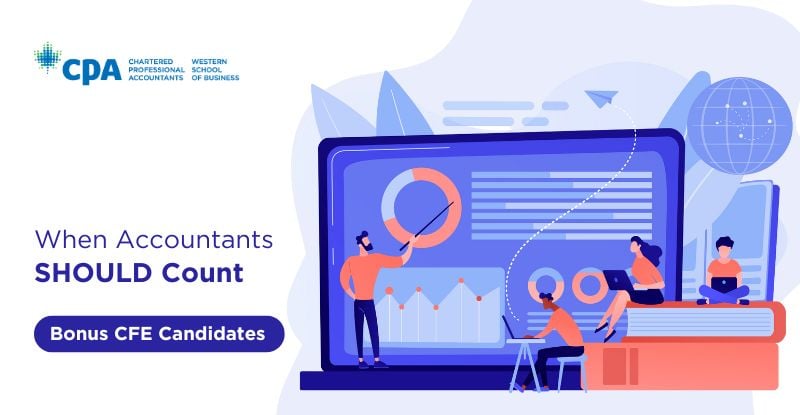
In this third and final part of the Power Move mini-series, I will complete exploring the theme of power, ending with my latest definition of power and how it relates to a candidate’s professional journey.
To become a CPA, a candidate must complete three requirements: education, evaluation, and experience. Our learning journey as CPAs does not cease upon membership; there are formal annual continuing professional development requirements. Further, CPAs often choose to invest in their personal growth to ensure their career meets their definition of success.
The Mindset
For future CPAs it is important to ask the question, what kind of professional are you aspiring to be? If you subscribe to having a growth mindset, you believe abilities can be achieved through dedication and hard work and are not “fixed” at birth (Dweck, 2008). Candidates with a growth mindset can develop into the CPA they wish to become.
The Workplace
Professional Experience Reporting Tool (PERT) requires CPA candidates to demonstrate leadership in the form of supervising others. I often chant a mantra in my workshops: LEARN! DO! TEACH! where I offer one does not truly possess mastery over a concept until they can teach it. Often, we think we know how to do something but when we try and explain it aloud to others, the words are not there. Now let me ask you, whose fault is that and what can we do to bridge the gap between where we are and what we wish to achieve? How you answer that question will help determine the type of professional you will develop into.
The Director
Within two years after becoming a designated accountant, I earned a senior leadership position and found myself facing well-deserved criticism in a large boardroom filled with many witnesses. The onslaught of verbal jiu-jitsu from one participant left me emotionally concussed. After my opponent commenced his victory lap, his senior colleague smiled at me and acknowledged that was a bit of a rough one. John shared, “We’ve all been there” – and he meant everyone. It turned out that the mixed martial arts language specialist had had a few public fallouts. Perhaps the type of professional my attacker developed into resulted from criticism he had received earlier in his career, which impacted how he chose to deal with it then and continued to impact how he interacted with others.
The Definition
My current definition of power is as follows: Power comes from recognizing that we have choices, including in how we act and react to situations. Possessing the ability to squash, crush, emulsify another…and then choosing not to. The champion of restraint, a pursuit of kindness. The ultimate power move.
The Choice
In part 1, I explored the power dynamics of entering CPA PEP and tools designed to help candidates with that transition. In part 2, I discussed my evolving definition of power with examples of Doug sharing his platform and myself delivering Ultimate Feasts, alongside resources available for candidates to take ownership over their CPA education journeys. In this post, we conclude the three-part mini-series by looking at power juxtaposed by two different professionals.
We all have power – yes, YOU! How will you use yours?
“No one is you and that is your biggest power.”
Dave Grohl
Do you have feedback on this post or a question you’d like answered by an experienced CPAWSB educator? Please contact your facilitator or send a question to the General Topic in the Candidate Discussion forum.

Samantha Taylor, PME, CPA, CA, is an educator and lead policy advisor for CPAWSB, and an instructor of accounting at Dalhousie University. She is on a mission to understand and enable learner efficacy while eliminating doldrums occasionally associated with accounting education. Read more of Sam’s posts at the CPAWSB blog.
Reference
Dweck, C.S. (2008). Mindset: The new psychology of success. New York: Ballantine Books.




